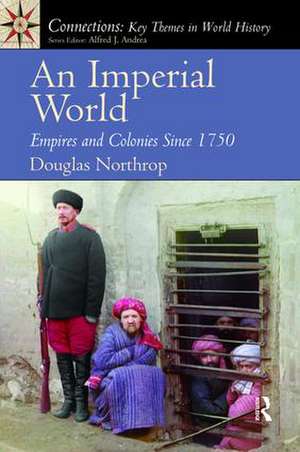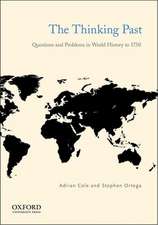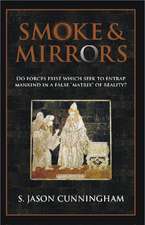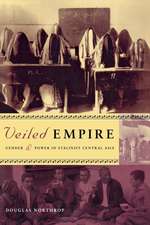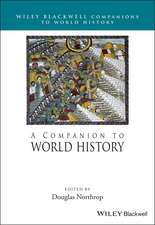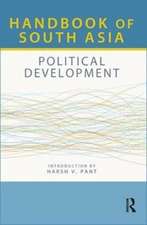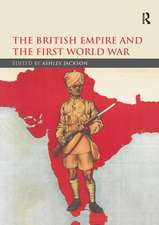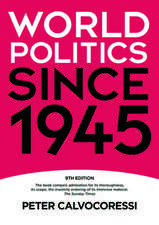An Imperial World: Empires and Colonies Since 1750
Autor Douglas Northropen Limba Engleză Hardback – 25 aug 2017
An Imperial World uses a combination of primary documents and analytical essays, both tightly focused around four case studies: India, Africa, Asia, and the Americas. It examines the historical development of colonial systems and shows their enormous role in shaping the modern world order. It is meant to be thematic and suggestive, offering arguments and information to serve as a starting point for discussion and exploration.
Preț: 1023.49 lei
Preț vechi: 1371.68 lei
-25% Nou
Puncte Express: 1535
Preț estimativ în valută:
195.84€ • 204.08$ • 162.16£
195.84€ • 204.08$ • 162.16£
Carte tipărită la comandă
Livrare economică 03-17 aprilie
Preluare comenzi: 021 569.72.76
Specificații
ISBN-13: 9781138475793
ISBN-10: 1138475793
Pagini: 240
Dimensiuni: 152 x 229 mm
Greutate: 0.94 kg
Ediția:1
Editura: Taylor & Francis
Colecția Routledge
Locul publicării:Oxford, United Kingdom
ISBN-10: 1138475793
Pagini: 240
Dimensiuni: 152 x 229 mm
Greutate: 0.94 kg
Ediția:1
Editura: Taylor & Francis
Colecția Routledge
Locul publicării:Oxford, United Kingdom
Public țintă
UndergraduateNotă biografică
Douglas Northrop is an associate professor in the departments of history and Near Eastern studies at the University of Michigan. He is the author of Veiled Empire: Gender and Power in Stalinist Central Asia (Cornell University Press, 2004), which won both the W. Bruce Lincoln Prize and Heldt Prize. Northrop has also published articles in Slavic Review and Russian Review, to name a few. Northrop specializes in the modern history of Central Asia, but also focuses his writing and teaching on world history, environmental history, and the cultural aspects of modern colonialism.
Cuprins
1. BRIEF TABLE OF CONTENTS Introduction: Encountering Empires Chapter One: The Raj: British Empire in India and South Asia, 1757-1947 Chapter Two: The Scramble for Africa: European Colonialism and African Resistance, 1806-1945 Chapter Three: Hidden Empire: Dependency, Domination, and Neo-Colonialism in the Americas, 1783-1933 Chapter Four: Empires of Freedom: The Modern Imperial and Social State in Asia, 1731-1946 Epilogue: Making Connections: An Imperial World, Then and Now 2. FULL TABLE OF CONTENTS Introduction: Encountering Empires Definitions and Contexts A World of Empires, 1500-1750 Connections and Colonies since 1750 Chapter One: The Raj: British Empire in India and South Asia, 1757-1947 Definitions and Contexts Rebellion and Repression Under the Raj: British Empire in India (1857-1947) SOURCES Remaking an Empire: Culture, Reform, and the East India Company Anti-Imperial Critique: Victorian Empire through Indian Eyes Colonial Subjects Look Back: Indian Memories of the Raj Chapter Two: The Scramble for Africa: European Colonialism and African Resistance, 1806-1945 Dividing Africa: European Diplomats and the Legalities of Colonial Conquest Contingent Conquest: Windows of African Vulnerability and European Opportunity Empires of Extraction: Administering Africa in the New Colonial Order The Colonies Strike Back: Hybrid Cultures and Shades of Resistance Double-Edged Swords: The Unintended Consequences of Global Colonialism SOURCES Mentalities of Rule: Administering French West Africa (1908) Empire and Its Discontents: Investigating the Belgian Congo (1905) Race and the Imperial Economy: An African View of the Native Lands Act (1916) Colonial Crossings I: Cultures of Health and Religion (1893) Colonial Crossings II: Cultures of Religion and Health (1937) Chapter Three : Hidden Empire: Dependency, Domination, and Neo-Colonialism in the Americas, 1783-1933 National Liberation as Elite Freedom: Cultural Mixing and Social Divides Empires of Force and Freedom: Territorial Expansion and Indirect Influence Rethinking the Hidden Empire: Colonial Rebellion and Its Costs SOURCES An Empire of Ideals: The United States as a Colonial Power (1899). Ideals Against the Empire: The USA Should Not Be a Colonial Power (1898). Economies of Exploitation: The Rubber Trade in Putumayo (1911). Cash Colonies: Tracing Finance and Politics in a Neocolonial World (1922). Chapter Four: Empires of Freedom: The Modern Imperial and Social State in Asia, 1731-1946 Paradoxes of Socialist Colonialism: New Visions for Central Asia Benevolent Assimilation: American Colonial Power Across the Pacific Emulating Empire While Assisting Asia: Paradoxes of Japanese Imperialism SOURCES The Case for Colonizing the Philippines (1900). The Case against Philippine Colonization (1899). Japan as Colonizer: Imperial Power in Taiwan (1912) Anti-Colonial Empire: Liberating Women in Soviet Central Asia (1927) Epilogue: Making Connections: An Imperial World, Then and Now SOURCES One for All, All for One: Xinjiang as an Inalienable Part of China (2003)
Descriere
A Primer in Theory Construction is for those who have already studied one or more of the social, behavioral, or natural sciences, but have no formal introduction to the way theories are constructed, stated, tested, and connected together to form a scientific body of knowledge. The author discusses scientific theories in general terms, but also addresses the special challenges of developing scientific knowledge about social and human phenomena.This Allyn and Bacon Classics Edition contains the complete text of the original copyright 1971 version, with new typography and page design.
